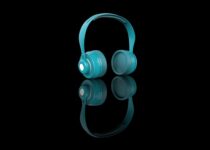Do noise-canceling headphones cause tinnitus?
Do noise-canceling headphones cause tinnitus? This question has been debated among audiophiles and health experts for years. Tinnitus, a ringing or buzzing sound in the ears, affects millions of people worldwide.
With the increasing popularity of noise-canceling headphones, it’s natural to wonder if they contribute to the development of tinnitus.
The short answer is no, noise-canceling headphones do not cause tinnitus. However, the issue is more complicated than a simple yes or no.
If you’re an avid user of noise-canceling headphones, you may be wondering what steps you can take to protect your hearing.

In this article, we’ll explore the relationship between noise-canceling headphones and tinnitus and offer tips for preventing hearing loss and tinnitus. So, put on your headphones, and let’s dive into this topic.
Noise-canceling headphones have become increasingly popular among music enthusiasts, travelers, and office workers.
They promise to eliminate unwanted background noise, allowing you to enjoy your music or focus on your work without distraction.
However, there have been concerns that noise-canceling headphones could lead to tinnitus. In this article, we will explore whether there is any truth to this claim.
What is Tinnitus?
Before we delve into whether noise-canceling headphones cause tinnitus, it’s essential to understand what tinnitus is.
Tinnitus is a condition where you hear a ringing, buzzing, or humming sound in your ear that is not caused by an external sound. It can be constant or intermittent and can affect one or both ears.
Tinnitus can be caused by exposure to loud noises, ear infections, or underlying health conditions.
How to Do Noise-Canceling Headphones Work?
To understand whether noise-canceling headphones can cause tinnitus, we must first understand how they work.
Noise-canceling headphones use microphones to pick up external sounds and produce an equal but opposite sound wave to cancel out the external noise.
This process is called active noise cancellation (ANC) and is designed to reduce external noise levels by up to 30 decibels.
An Overview of How Active Noise Cancellation Works
Active noise cancellation is a technology that uses advanced electronics to reduce unwanted ambient noise.
It works by using microphones built into the headphones to detect external sounds and then creating a sound wave that is the exact opposite of the unwanted noise.
When the sound wave produced by the headphones meets the sound wave of the unwanted noise, they cancel each other out, effectively reducing or eliminating the external noise. This process is known as destructive interference.
Active noise cancellation is particularly effective at reducing constant, low-frequency noise such as the hum of an airplane engine or the rumble of a train. It is less effective at reducing sudden or high-pitched noises such as a car horn or a baby crying.
Overall, active noise cancellation is a useful technology for reducing unwanted noise and improving the listening experience for headphone users.
Can active noise-canceling headphones impact tinnitus?
Tinnitus is a condition that causes a ringing or buzzing sound in the ears, which can be very distressing for those who experience it.
Some people with tinnitus find that using noise-canceling headphones can help to reduce the symptoms of their condition.
By blocking out external noise, these headphones can make it easier to focus on other sounds, which can help to reduce the perception of tinnitus.
However, there is also a risk that noise-canceling headphones can exacerbate tinnitus symptoms. Some people find that the constant white noise produced by these headphones can actually make their tinnitus worse.

It’s important to use noise-canceling headphones safely and responsibly if you have tinnitus.
Experts recommend using them at a low volume, taking breaks every hour, and avoiding using them for prolonged periods.
Do Noise-Canceling Headphones Cause Tinnitus?
So now the answer to the question “Do noise-canceling headphones cause tinnitus?” is that there is no direct evidence to suggest that using noise-canceling headphones causes tinnitus.
However, if you listen to music through headphones for prolonged periods at high volumes, you can damage your hearing. This damage can lead to tinnitus.
One of the advantages of noise-canceling headphones is that they allow you to listen to music at lower volumes since they block out external noise.
This feature can help prevent hearing damage and reduce the risk of developing tinnitus.
How can headphones cause hearing loss and tinnitus?
Headphones can cause hearing loss and tinnitus if they are used at high volumes for prolonged periods.
When you listen to music through headphones, the sound waves travel directly into your ears, which can cause damage to the hair cells in your inner ear.
These hair cells are responsible for transmitting sound signals to your brain. If they become damaged, they can no longer function correctly, which can lead to hearing loss and tinnitus.
The risk of hearing damage depends on two factors: the volume of the sound and the length of time you are exposed to it.
The louder the sound, the less time it takes to cause damage. For example, listening to music at 100 decibels can cause hearing damage after just 15 minutes of exposure.
It is worth noting that there has been research conducted on the potential link between noise-canceling headphones and tinnitus.
One study published in the Journal of the American Medical Association found that individuals who regularly used headphones, including noise-canceling headphones, at high volumes were more likely to experience hearing loss and related conditions such as tinnitus.
However, it is important to emphasize that this study did not specifically single out noise-canceling headphones as a unique risk factor for tinnitus.
Instead, the study highlights the importance of responsible use of all types of headphones, including noise-canceling headphones, at safe volume levels to avoid potential hearing damage and related conditions such as tinnitus.
What are safe volume levels?
Safe volume levels for headphones depend on the duration of exposure to sound. Experts recommend keeping the volume at 60% of the maximum volume or lower to reduce the risk of hearing damage.
At this level, you should be able to hear external sounds such as traffic or people talking.
If you’re listening to music or other audio through headphones for an extended period, it’s essential to take regular breaks. Experts recommend taking a break for at least five minutes every hour to give your ears a rest.
It’s also important to consider the decibel level of the headphones you are using.
The study from the National Institute on Deafness and Other Communication Disorders (NIDCD) explores the impact of noise exposure on hearing health.
The study establishes that sounds at or below 70 decibels are considered safe and unlikely to cause hearing loss. However, as the decibel level increases, so does the risk of hearing damage.
Sounds at or above 85 decibels, such as those from loud concerts, headphones, and power tools, can cause hearing damage if exposure is prolonged.
The study emphasizes the importance of protecting hearing health by limiting exposure to loud sounds and wearing ear protection when in noisy environments.
It also recommends using headphones at safe volume levels and taking regular breaks to avoid potential hearing damage and related conditions such as tinnitus.
Potential Tinnitus Triggers Despite Safe Noise-Cancelling Headphones
While noise-canceling headphones can be safe when used responsibly, there are many other things that can cause tinnitus. Tinnitus is a condition that causes a ringing, buzzing, or other types of noise in the ears.
Some common causes of tinnitus include exposure to loud noise, ear infections, head injuries, and certain medications. Aging and changes in the ear structure can also contribute to the development of tinnitus.

Exposure to loud noise is a common cause of tinnitus, and it can happen suddenly or gradually over time. People who work in loud environments or who listen to loud music through headphones are particularly at risk.
It’s important to protect your ears from loud noise by wearing earplugs or noise-canceling headphones and taking regular breaks.
Ear infections can also cause tinnitus, as can head injuries that affect the auditory system. Certain medications, such as antibiotics and chemotherapy drugs, can also contribute to tinnitus.
If you’re experiencing tinnitus and you’re taking medication, it’s essential to talk to your doctor about whether the medication could be contributing to your symptoms.
Overall, while noise-canceling headphones can be safe when used responsibly, it’s important to be aware of the many other factors that can contribute to tinnitus.
By taking steps to protect your ears from loud noise, seeking prompt treatment for ear infections, and discussing any medication-related concerns with your doctor, you can reduce your risk of developing tinnitus.
How to Use Noise-Canceling Headphones Safely
To use noise-canceling headphones safely, you should follow these guidelines:
- Listen at safe volumes: Experts recommend keeping the volume at 60% of the maximum volume or lower.
- Take breaks: Give your ears a rest every hour or so. This break will allow your ears to recover from the noise exposure.
- Use noise-canceling headphones in a quiet environment: Using noise-canceling headphones in a quiet environment reduces the need to increase the volume to hear your music.
- Choose noise-canceling headphones with lower decibel ratings: Look for headphones with a decibel rating of 85 dB or less. This rating will help protect your hearing from damage.
Frequently asked questions
Can noise-cancelling headphones cause hearing damage?
While noise-canceling headphones themselves are not likely to cause hearing damage, listening to music at high volume levels for extended periods can lead to hearing damage.
It’s important to use noise-canceling headphones responsibly, by keeping the volume at safe levels and taking regular breaks.
What are the negative effects of noise-cancelling headphones?
The negative effects of noise-canceling headphones can include the risk of tinnitus and hearing damage if used improperly. They can also create a feeling of pressure in the ears, which some people find uncomfortable.
Additionally, noise-canceling headphones can be more expensive than regular headphones.
Does noise-cancelling stop tinnitus?
While noise-canceling headphones can help reduce external noise, they are not a cure for tinnitus. Tinnitus is often caused by internal factors, such as changes in the auditory system or exposure to loud noise.
While noise-canceling headphones may help reduce external noise that could exacerbate tinnitus, they won’t necessarily stop the symptoms altogether.
How do I stop tinnitus with headphones?
While there is no cure for tinnitus, some people find that using headphones with white noise or other soothing sounds can help reduce the symptoms.
It’s important to use headphones at safe volume levels and to avoid listening for extended periods, as this can contribute to hearing damage.
Additionally, it’s essential to seek medical attention if you are experiencing tinnitus, as there may be underlying medical causes that require treatment.
Conclusion
Noise-canceling headphones have become increasingly popular among music enthusiasts, travelers, and office workers.
They promise to eliminate unwanted background noise, allowing you to enjoy your music or focus on your work without distraction.
However, there have been concerns that noise-canceling headphones could lead to tinnitus.
We have explored whether there is any truth to this claim.



